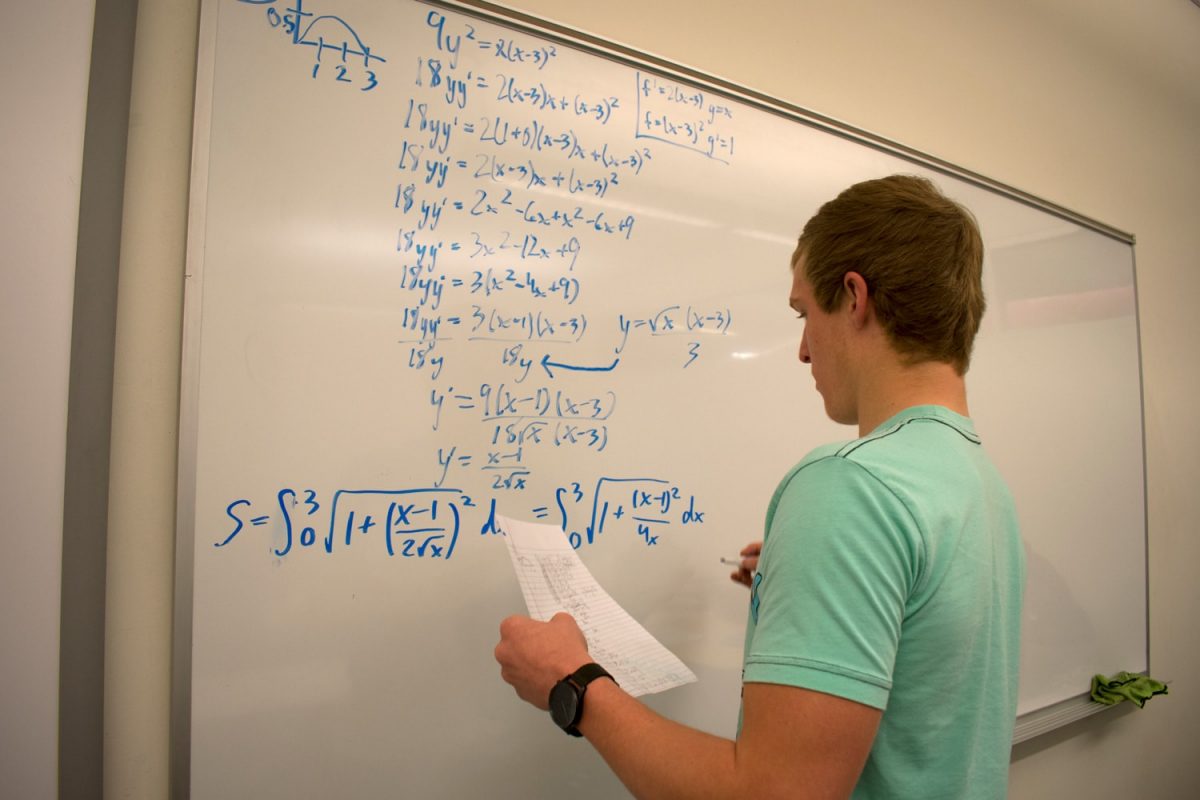Mathematics Program Assessment Plan
In consideration of our responsibility for delivering a high-quality program in mathematics and computer science that is consistent with the mission and goals of the institution, we have developed the following program-level goals and learning outcomes.
Program Goal One: Effectively communicate topics in the mathematical sciences.
Learning Outcomes:
- Students will effectively communicate topics related to the mathematical sciences in written form.
- Students will effectively communicate topics related to the mathematical sciences in oral form.
Program Goal Two: Formulate, analyze, and solve a wide variety of problems in the mathematical sciences.
Learning Outcomes:
- Students will recognize problem solving techniques appropriate to a given situation, including the development of mathematical models, the identification of assumptions, the understanding of the limitations of models, and the use of both graphical and numerical methods.
- Students will demonstrate the use of technology to understand, solve, and generalize problems.
- Computer science students are proficient in writing correct, well-designed, and well-documented object-orientated programs.
Program Goal Three: Engage in a life-long learning process via the ability to self-educate.
Learning Outcomes:
- Students will be able to recognize, understand, and analyze material related to the mathematical sciences from written sources.
- Students will be able to self-assess their academic growth.
Program Goal Four: Demonstrate proficiency with topical content and techniques in mathematical sciences.
Learning Outcomes:
- Students demonstrate an understanding of commonly used facts, formulas, terminology, and definitions.
- Students can write well-constructed and logical mathematical proofs.
- Computer Science students are proficient in writing well-designed, and well-documented object oriented programs.



